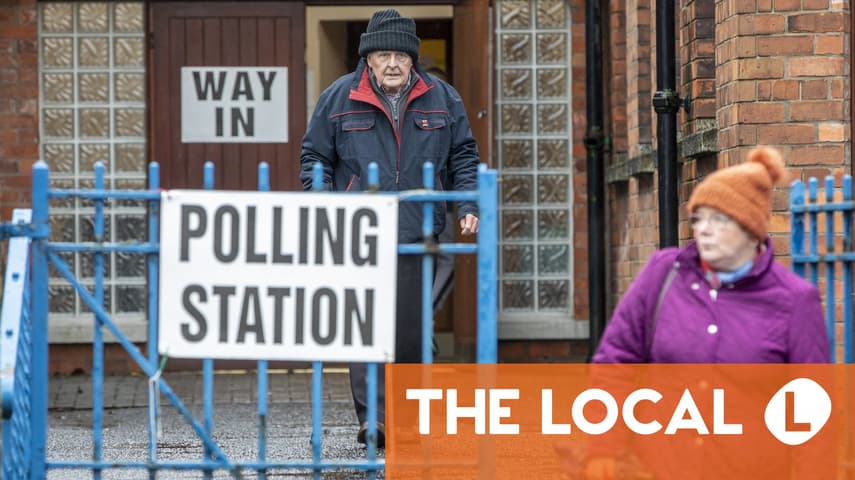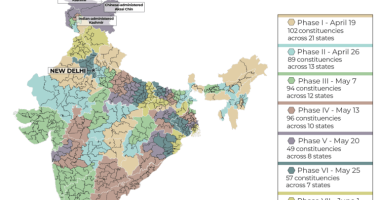
The UK has finally scrapped the long-disputed 15-year rule that barred many Britons living overseas from voting.
The rule had meant that an estimated 3.4 million Britons who have lived around the world for more than 15 consecutive years were barred from voting in UK elections.
But now that rule has been scrapped, meaning that Britons living across Europe and further afield are now able to register to vote in the upcoming election, which Prime Minister Rishi Sunak has confirmed will take place on July 4th.
Eligibility
To vote in a UK election, voters must:
- be 18 or over on the day of the election (‘polling day’);
- be a British, Irish or qualifying Commonwealth citizen;
- be resident at an address in the UK (or a British citizen living abroad);
- not be legally excluded from voting.
British citizens who have never lived in the UK will not be able to vote.
Voters living overseas will be registered in the constituency where they were last registered to vote in the UK, or where they lived with registered voters if they were too young to vote.
Crucially, even if you have previously been registered to vote in UK elections, you may not be on the electoral register for this year as annual renewal has been a requirement for overseas voters up to now. So it is a good idea to ensure you are registered to vote.
Advertisement
How to register
Registration falls into two categories. Anyone who last voted in England, Scotland, or Wales, who falls into the following groups can register immediately via this website:
- people who were previously registered to vote in the UK and who have lived abroad for less than 15 years;
- Those who were too young to register when you left the UK less than 15 years ago, but your parents or guardians were.
Note: voters originally from Northern Ireland should use this website.
If you need help registering you can contact the Electoral Registration Office for the UK address where you were last registered to vote.
What you need to register to vote – If you have lived outside the UK for less than 15 years, you will need to provide the following:
Advertisement
- Your National Insurance number or a UK identity document, such as a passport, even if it has expired;
- The address where you, or your parent/guardian, were last registered to vote in the UK. Officials will cross-reference details on voter registration databases before confirming your right to vote.
Lived outside the UK for more than 15 years
Those who lived outside the UK for more than 15 years, and who were previously disbarred from voting, use a different website. The following groups of people are advised to register using the new portal:
- Britons who have lived outside the UK for more than 15 years, but who were previously registered to vote in a UK constituency;
- Those who were too young to register when you left the UK more than 15 years ago;
- British citizens born overseas who have lived in the UK at some point but never registered to vote.
Advertisement
What you need to register to vote – Registering is more complicated for those who have lived outside the UK for more than 15 years and have not registered as an overseas voter.
As well as proof of ID, such as a passport, you need to provide documentary proof that you once lived at a UK address in the constituency where you wish to vote, such as a British driving licence – even if it has expired, an old utility bill, a tax statement, or council tax demand, a rent book, or land registry document. Something, basically, that has your name and address on it.
Don’t have all the documents?
All is not lost. If you never had or have lost certain documents, such as a proof of address, council voting officials can ask for an ‘attestation of previous residence’.
This is, basically, a signed statement from a UK-based voter of ‘good standing in the community’ that the overseas-based person registering to vote lived at a particular UK address, and should include estimated dates that they lived at that address.
Be aware that this hypothetical voter ‘of good standing’ can only sign statements for two overseas-based voters. There’s no indication that this voter should live in the same constituency in which applicants want to register, but it can’t hurt.
What ballot options are available to overseas voters
There are two possible ways to vote for Britons living overseas. You can opt for a postal vote or ask for a proxy vote.
There have been problems in the past with postal votes not arriving at overseas addresses in time. The British government has pledged to prioritise the sending of overseas ballots, but that concern remains valid.
You may prefer to opt for the proxy option, in which you authorise a UK-based voter to exercise your right to vote on your behalf. Your proxy does not have to live in the same constituency, as they can ask for a postal vote on your behalf.
UK-based voters may only act as proxies for four people living overseas.
The normal deadline to register to vote is 12 days before an election – although overseas voters are advised to register earlier in order to leave time to arrange a postal or proxy vote, if they need one.
Read More: World News | Entertainment News | Celeb News
Locals










